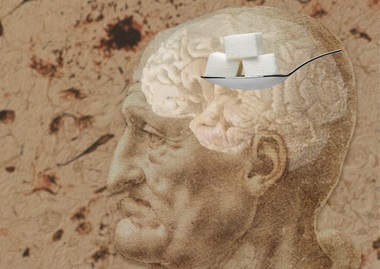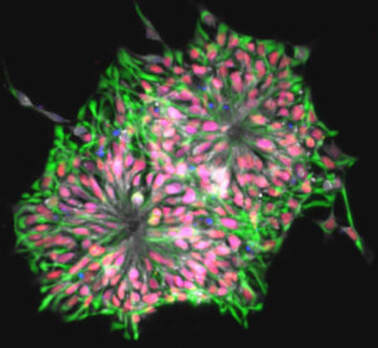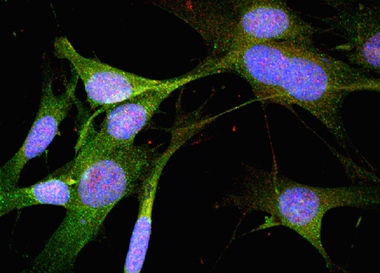Lactate metabolism in memory and Alzheimer's diseaseWe have discovered that aerobic glycolysis, a type of metabolism frequently found in cancer cells, is elevated in the early stages of Alzheimer's disease. Increased aerobic glycolysis results in the elevated production of lactate. While lactate promotes memory in a healthy aging brain, we now have evidence indicating that excess lactate levels may actually be detrimental in the Alzheimer's disease brain.
|
Longevity genes and metabolismWhat are the molecular determinants of age-related changes in brain metabolism? We are currently explored two candidate regulators of brain metabolism: p66Shc and telomerase. Both of these proteins are implicated in longevity in opposing ways; p66Shc activity shortens whereas telomerase activity increases lifespan. We are examining the role of these proteins in regulation of mitochondrial activity in CNS cells with age.
Stem cell fate and metabolismMetabolism is no longer viewed as process that merely changes in response to cellular demands but is actually a driver of cell fate. We are exploring the effect of sole fuel source selection as a strategy to reprogram cellular metabolism and promote pluripotency. We are also examining the role of the adaptor protein p66Shc on cell fate determination using in vivo and in vitro models.
|
Huntington's disease and antioxidant defenceWe recently discovered that antioxidant enzyme gene expression is compromised in cell culture models of Huntington’s disease. Moreover, we have identified a novel thiol-based compound which robustly activates Nrf2 in various neuronal cell culture models. We currently are determining the exact mechanism by which thiol-based compounds are able to restore Nrf2-mediated transcriptional effects in Huntington's disease cell culture models using biochemical, molecular and live cell imaging analyses.
|



